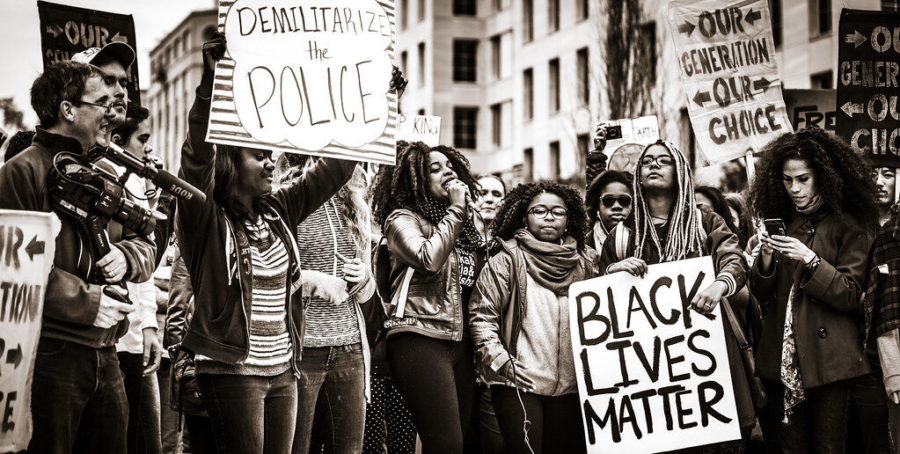Spann: Race against racism: The uphill battle against (police) brutality
August 24, 2020
When asked to define racism, the statement that follows always consists of a black and white relationship. Yet the definition of racism as found in Webster’s dictionary is as follows: “a belief that race is the primary determinant of human traits and capacities and that racial differences produce an inherent superiority of a particular race.”
After recent events within my lifetime, I can understand the misunderstanding of how racism became a black and white issue. With instances like the murders of Breonna Taylor and George Floyd, as well as those that haunt the minds of African Americans’ lives — those including Sandra Bland or Travon Martin — indicate that racism goes further than discrimination. It bleeds into law and order, police brutality and social justice disputes.
Yet after the country watched the murder of George Floyd on May 25, some — like me — watched, lived and relived those eight minutes and 46 seconds. We watched as officer Derek Chavin knelt on Floyd’s neck for eight minutes and 15 seconds as he continuously cried out, “I can’t breathe.” The words that have haunted the minds of Black people every day since Eric Garner echoed it when he was murdered in 2014.
These words are now a pillar for both Black Lives Matter rallies and police brutality rallies. Even after all 50 states held their own protests with support from all around the world, yes, policies were written. However, has anything changed when this is just another thing that people entangle with being a “norm” to which all people of color must conform?
It is often argued that the Black Lives Matter movement shouldn’t exist or that the All Lives Matter movement should take precedence because they feel that the Black Lives Matter movement only represents one group of people. I would like to refute that claim.
“An overwhelming majority of Black [people] (88 percent) say the country needs to continue making changes for Black [people] to have equal rights with white [people], but 43 percent are skeptical that such changes will ever occur,” according to the Pew Research Center.
How can a country’s liberty-based documents represent the people if it didn’t even include women and people of color? We still utilize these same documents even though we have amendments like the 13th, 14th and 15th amendments. Even after these amendments, the treatment of Black people didn’t change. Once slavery was illegal, a system of systemic oppression or institutional racism was born.
People of color can work until their bones ache but can’t walk home from the store, drive their cars or even travel without the eerie thought that they may not make it home. We all know “the talk” to be about the birds and the bees. That’s a privilege. People of color get two: one for sex and one to help them stay alive. We are told to never speak out of turn, to not be confrontational, to always have your hands be seen and to avoid sudden movements.
So, I say Black Lives Matter is a movement we need and that it’s not said from an exclusionary standpoint. But if you can’t see why people of color or Black people feel we need a movement or platform to remind the country that our lives matter too, then you need to check your privilege at the door and hit the books.







